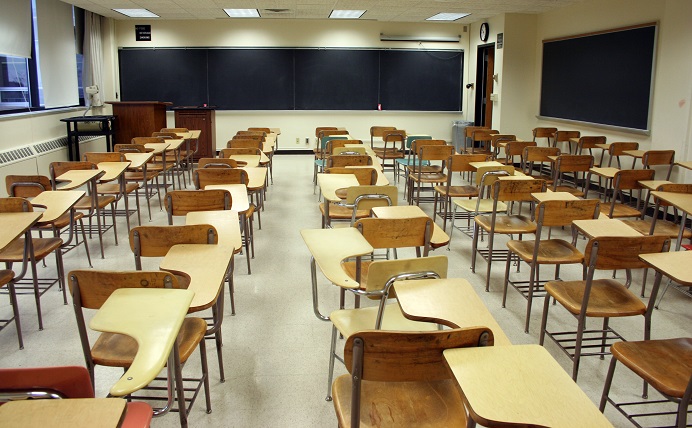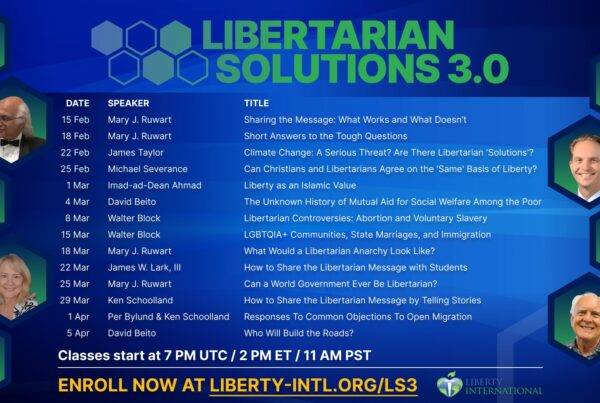In her second term as president of Chile Michelle Bachelet is set to impose significant educational reforms to further her socialist agenda. An estimated increase of 1.5-2 percent of GDP on top of existing spending is supposed to improve the quality of and access to (higher) education and thereby reduce the problems of inequality and segregation.
Bachelet’s plan to provide “free” college education to all Chileans exposes her ignorance of the effect of such policies in other countries. It is a statist’s’ knee-jerk reaction: once we’ve identified a problem naturally all we need to do is throw a bunch of money at it and have the government point guns at people, and the rest will take care of itself! After all, the Danish taxpayer is forced to pay for everyone’s college tuition, and they are prospering!
This sort of simplistic stance on education completely ignores historical and empirical evidence that shows that the voluntary system in existence before the dawn of compulsory schooling already met the existing needs for education, or that modern public schooling is a lot more likely to increase social segregation. The latter is confirmed by Chilean figures correlating people’s addresses, incomes and test scores. Besides, we already know that putting more power into the hands of bureaucrats in faraway government buildings, where we can be sure their views and policies will be heavily influenced by special interest groups, will invariably reduce transparency, accountability and quality.
In the United States, for instance, this has lead to a ballooning student loan debt that now stands at $1.2 trillion or some $30,000 per student. In three decades tuition fees have risen by 1,120 percent, meaning that the same college degree today costs 12 times as much as in 1978. The total bill ranked up on behalf of the American taxpayer stands at $22 billion per year, much of which can be traced back to the government programs championed by Lyndon B. Johnson in the sixties as part of his “Great Society”.
The modern school system is largely based on a foundation laid by Iron Chancellor Otto von Bismarck in the late 19th century, with the aim of supplying his military with soldiers willing to follow orders unquestioningly. Should we be surprised, then, that our schools don’t produce critical thinkers and enterprising individuals? Is it any wonder how pervasive statism is in our society? If we were all forced to go to universities funded and run by Coca-Cola could we reasonably expect anyone to be critical of Coca-Cola?
In recent debates about education here in Chile we have heard some shockingly uneducated (pun intended) statements from officials, stating “we don’t know if for-profit education, selection or shared finance of schools and universities actually affect quality” and that “there is no recipe for quality”. The fact that these people are not only engaged in the debate but likely to exert significant influence on the outcome thereof is a worrying prospect.
If an objectively written book was ever published on the State’s involvement in schooling our children it might be titled “Government schooling: making every student equally miserable since the 1870s”. Should the Bachelet administration succeed in stripping away school choice the educational system will likely go down that very path.
As Murray Rothbard pointed out: “It is clear that the suppression of free instruction should be regarded with even greater horror than suppression of free press, since here the unformed minds of children are involved.” Chilean libertarians have their work cut out for them.




